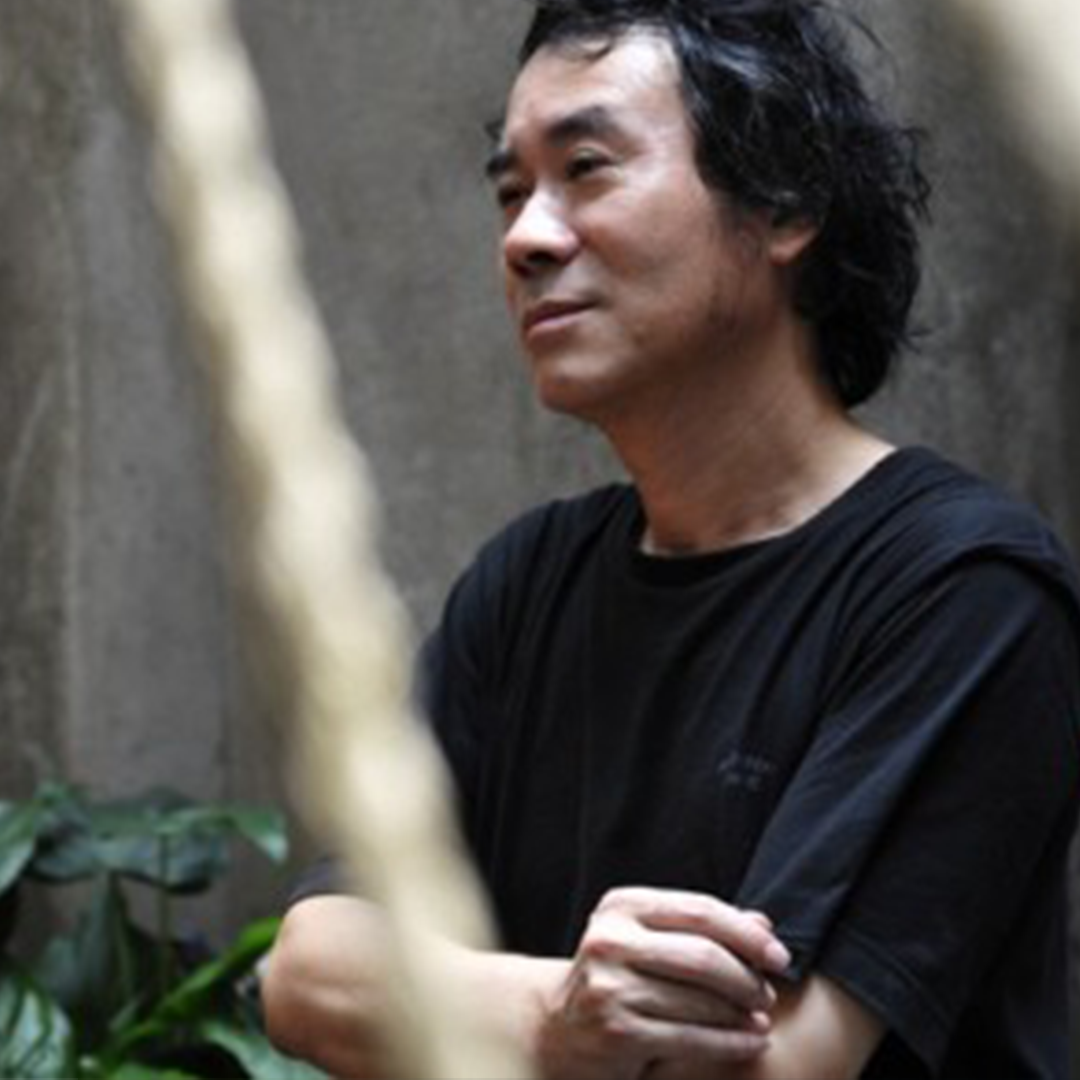Index relies entirely on the support of donors and readers to do its work.
Help us keep amplifying censored voices today.
[vc_row][vc_column][vc_custom_heading text=”Editor-in-chief Rachael Jolley argues in the autumn 2019 issue of Index on Censorship magazine that travel restrictions and snooping into your social media at the frontier are new ways of suppressing ideas” google_fonts=”font_family:Libre%20Baskerville%3Aregular%2Citalic%2C700|font_style:400%20italic%3A400%3Aitalic”][vc_column_text]

Border Forces – how barriers to free thought got tough
[/vc_column_text][vc_row_inner][vc_column_inner width=”1/4″][vc_icon icon_fontawesome=”fa fa-quote-left” color=”custom” size=”xl” align=”right” custom_color=”#dd3333″][/vc_column_inner][vc_column_inner width=”3/4″][vc_custom_heading text=”Border officials in some countries already seek to find out about your sexual orientation via an excursion into your social media presence as part of their decision on whether to allow you in” font_container=”tag:h3|text_align:left” google_fonts=”font_family:Libre%20Baskerville%3Aregular%2Citalic%2C700|font_style:400%20italic%3A400%3Aitalic”][/vc_column_inner][/vc_row_inner][vc_column_text]
[/vc_column_text][/vc_column][/vc_row][vc_row][vc_column][vc_column_text]
[/vc_column_text][/vc_column][/vc_row][vc_row][vc_column width=”1/3″][vc_custom_heading text=”How barriers to free thought got tough” font_container=”tag:h3|text_align:left” link=”url:https%3A%2F%2Fwww.indexoncensorship.org%2F2019%2F09%2Fmagazine-border-forces-how-barriers-to-free-thought-got-tough%2F|||”][vc_column_text]The autumn 2019 Index on Censorship magazine looks at borders round the world and how barriers to free thought got tough[/vc_column_text][/vc_column][vc_column width=”1/3″][vc_row_inner][vc_column_inner][vc_single_image image=”108826″ img_size=”full” onclick=”custom_link” link=”https://www.indexoncensorship.org/2019/09/magazine-border-forces-how-barriers-to-free-thought-got-tough/”][/vc_column_inner][/vc_row_inner][/vc_column][vc_column width=”1/3″][vc_custom_heading text=”Subscribe” font_container=”tag:h3|text_align:left”][vc_row_inner][vc_column_inner][vc_column_text]In print, online. In your mailbox, on your iPad.
Subscription options from £18 or just £1.49 in the App Store for a digital issue.
Every subscriber helps support Index on Censorship’s projects around the world.
![]() SUBSCRIBE NOW[/vc_column_text][/vc_column_inner][/vc_row_inner][/vc_column][/vc_row]
SUBSCRIBE NOW[/vc_column_text][/vc_column_inner][/vc_row_inner][/vc_column][/vc_row]
[vc_row][vc_column][vc_custom_heading text=”With contributions from Kerry Hudson, Chen Xiwo, Elif Shafak, Meera Selva, Steven Borowiec, Brian Patten and Dean Atta”][/vc_column][/vc_row][vc_row][vc_column][vc_column_text]

Border forces – how barriers to free thought got tough
[/vc_column_text][/vc_column][/vc_row][vc_row][vc_column][vc_custom_heading text=”Special Report: Border forces: how barriers to free thought got tough”][/vc_column][/vc_row][vc_row][vc_column][vc_column_text]Big brother at the border by Rachael Jolley
Switch off, we’re landing! by Kaya Genç Be prepared that if you visit Turkey online access is restricted
Culture can “challenge” disinformation by Irene Caselli Migrants trying to cross the Mediterranean to Europe are often seen as statistics, but artists are trying to tell stories to change that
Lines of duty by Laura Silvia Battaglia It’s tough for journalists to visit Yemen, our reporter talks about how she does it
Locking the gates by Jan Fox Writers, artists, academics and musicians are self-censoring as they worry about getting visas to go to the USA
Reaching for the off switch by Meera Selva Internet shutdowns are growing as nations seek to control public access to information
Hiding your true self by Mark Frary LGBT people face particular discrimination at some international borders
They shall not pass by Stephen Woodman Journalists and activists crossing between Mexico and the USA are being systematically targeted, sometimes sent back by officials using people trafficking laws
“UK border policy damages credibility” by Charlotte Bailey Festival directors say the UK border policy is forcing artists to stop visiting
Ten tips for a safe crossing by Ela Stapley Our digital security expert gives advice on how to keep your information secure at borders
Export laws by Ryan Gallagher China is selling on surveillance technology to the rest of the world
At the world’s toughest border by Steven Borowiec South Koreans face prison for keeping in touch with their North Korean family
Stripsearch by Martin Rowson Bees and herbaceous borders
Inside the silent zone by Silvia Nortes Journalists are being stopped from reporting the disputed north African Western Sahara region
The great news wall of China by Karoline Kan China is spinning its version of the Hong Kong protests to control the news
Kenya: who is watching you? by Wana Udobang Kenyan journalist Catherine Gicheru is worried her country knows everything about her
Top ten states closing their doors to ideas by Mark Frary We look at countries which seek to stop ideas circulating[/vc_column_text][/vc_column][/vc_row][vc_row disable_element=”yes”][vc_column][vc_custom_heading text=”Global View”][vc_column_text]Small victories do count by Jodie Ginsberg The kind of individual support Index gives people living under oppressive regimes is a vital step towards wider change[/vc_column_text][/vc_column][/vc_row][vc_row][vc_column][vc_custom_heading text=”In Focus”][vc_column_text]Germany’s surveillance fears by Cathrin Schaer Thirty years on from the fall of the Berlin wall and the disbanding of the Stasi, Germans worry about who is watching them
Freestyle portraits by Rachael Jolley Cartoonists Kanika Mishra from India, Pedro X Molina from Nicaragua and China’s Badiucao put threats to free expression into pictures
Tackling news stories that journalists aren’t writing by Alison Flood Crime writers Scott Turow, Val McDermid, Massimo Carlotto and Ahmet Altan talk about how the inspiration for their fiction comes from real life stories
Mosul’s new chapter by Omar Mohammed What do students think about the new books arriving at Mosul library, after Isis destroyed the previous building and collection?
The [REDACTED] crossword by Herbashe The first ever Index crossword based on a theme central to the magazine
Cries from the last century and lessons for today by Sally Gimson Nadine Gordimer, Václav Havel, Samuel Beckett and Arthur Miller all wrote for Index. We asked modern day writers Elif Shafak, Kerry Hudson and Emilie Pine plus theatre director Nicholas Hytner why the writing is still relevant
In memory of Andrew Graham-Yooll by Rachael Jolley Remembering the former Index editor who risked his life to report from Argentina during the worst years of the dictatorship[/vc_column_text][/vc_column][/vc_row][vc_row][vc_column][vc_custom_heading text=”Culture”][vc_column_text]Backed into a corner by love by Chen Xiwo A newly translated story by censored Chinese writer about the abusive relationship between a mother and daughter plus an interview with the author
On the road by Marguerite Duras The first English translation of an extract from the screenplay of the 1977 film Le Camion by one of the greatest French writers of the 20th century
Muting young voices by Brian Patten Two poems, one written exclusively for Index, about how the exam culture in schools can destroy creativity by the Liverpool Poet
Finding poetry in trauma by Dean Atta Male rape is still a taboo subject, but very little is off-limits for this award-winning writer from London who has written an exclusive poem for Index[/vc_column_text][/vc_column][/vc_row][vc_row][vc_column][vc_custom_heading text=”Column”][vc_column_text]Index around the world: Tales of the unexpected by Sally Gimson and Lewis Jennings Index has started a new media monitoring project and has been telling folk stories at this summer’s festivals[/vc_column_text][/vc_column][/vc_row][vc_row][vc_column][vc_custom_heading text=”Endnote”][vc_column_text]Endnote: Macho politics drive academic closures by Sally Gimson Academics who teach gender studies are losing their jobs and their funding as populist leaders attack “gender ideology”[/vc_column_text][/vc_column][/vc_row][vc_row][vc_column width=”1/3″][vc_custom_heading text=”Subscribe”][vc_column_text]In print, online, in your mailbox, on your iPad.
Subscription options from £18 or just £1.49 in the App Store for a digital issue.
Every subscriber helps support Index on Censorship’s projects around the world.
![]() SUBSCRIBE NOW[/vc_column_text][/vc_column][vc_column width=”1/3″][vc_custom_heading text=”Read”][vc_column_text]The playwright Arthur Miller wrote an essay for Index in 1978 entitled The Sin of Power. We reproduce it for the first time on our website and theatre director Nicholas Hytner responds to it in the magazine
SUBSCRIBE NOW[/vc_column_text][/vc_column][vc_column width=”1/3″][vc_custom_heading text=”Read”][vc_column_text]The playwright Arthur Miller wrote an essay for Index in 1978 entitled The Sin of Power. We reproduce it for the first time on our website and theatre director Nicholas Hytner responds to it in the magazine
READ HERE[/vc_column_text][/vc_column][vc_column width=”1/3″][vc_custom_heading text=”Listen”][vc_column_text]In the Index on Censorship autumn 2019 podcast, we focus on how travel restrictions at borders are limiting the flow of free thought and ideas. Lewis Jennings and Sally Gimson talk to trans woman and activist Peppermint; San Diego photojournalist Ariana Drehsler and Index’s South Korean correspondent Steven Borowiec
LISTEN HERE[/vc_column_text][/vc_column][/vc_row]
FEATURING

Novelist

Novelist

Writer
[vc_row][vc_column][vc_single_image image=”108932″ img_size=”full” add_caption=”yes”][vc_column_text]The Anti-Extradition Bill Movement began with the Hong Kong government’s attempt to amend the extradition bill, which would allow people residing in Hong Kong to be extradited to and tried in the mainland China. Within months, the protest developed into a massive and sustained movement. In one of the many marches, two million Hong Kongers showed up. Protesters also extended their goals and demanded the government investigate police brutality, drop charges against protesters who had been arrested, and implement democratic reform.
Scholars, commentators, and international observers alike are all stunned by the movement. We, common Hong Kongers, are also surprised by our own actions.
We have not achieved our goals yet, so it may sound overconfident to say that protesters worldwide can draw lessons from us. However, this movement grew out of a period of abeyance following the 2014 Umbrella Movement. We may not be able to tell others how to win a battle, but people can learn from us on how to mobilise and how to sustain a mobilisation.
Lesson One
Be tolerant to your fellow protesters who do not strictly share your tactical principles or ideologies.
The Umbrella Movement ended with a split within the opposition camp. Pan-democrats and traditional left-leaning movement groups split with localists, and militants engaged in heated and sometimes toxic verbal quarrels with pacifists and moderates. Social media such as Facebook magnified the mutual resentment. It was very demoralising.
The current movement sees a curious reengagement between militants and moderates. One major reason, of course, is that the government has become more oppressive. Blatant police brutality naturally unites people of all ideologies. Yet, we should also attribute the maintenance of unity to protesters’ willingness to learn from each other and to tolerate differences.
We may already have forgotten, but the first major resistance against the extradition bill was not on the streets. It was within the legislature. Pan-democratic lawmakers, many of whom were not comfortable with physical conflicts, made a “leap of faith” and became more militant. They filibustered, occupied chambers, surrounded a pro-Beijing lawmaker who tried to illegitimately chair the bill’s committee, and clashed with security officers. Their willingness to break some taboos earned them certain recognition from radicals and militants.
The first major test of unity came when militant protesters stormed into the legislature on 1 July, the anniversary of the handover of Hong Kong to China. The breaking of windows and vandalism could have easily alienated moderates. Yet, the militants tried hard to explain their action to seek understanding, and professed a strong sense of determination. Moderates, including the pan-dems, decided to not sever ties with them.
Another trial came when the controversial brawl at the airport broke out. The tying up of a reporter from the Global Times, who protesters believed was an undercover police officer from China, was certainly quite hard for moderates to swallow. However, some militants apologised the next day, providing moderates with the space to continue to stay united.
While radical militants repeatedly attacked police stations, moderates have so far tried to understand their anger and rejected the government’s accusation of riots. When moderates held a massive march the weekend after the airport demonstration, militants, despite believing that peaceful tactics were “useless,” joined in.
This unity is, of course, far from perfect. Moderates and militants continue to exchange strongly worded jibes and critiques. But both sides are more willing than before to cross the aisle. The classical tactic employed by the Chinese Communist Party to quell dissidents is the “united front”: unite with secondary enemies while attacking the major ones. In some sense, Hong Kong protesters have finally adopted this principle. Tactical and ideological differences are secondary, the primary enemy is the government. If the CCP wants to divide and destroy, then we need to unite and resist.
Lesson Two
Be water, be creative, and be humble.
“Be water” is probably the highest principle of mobilisation in this movement. The idea comes from the martial artist and film star Bruce Lee: “Be formless, shapeless, like water… Water can flow, or it can crash. Be water, my friend.” The point is to reject any form of tactical formalism.
During the Umbrella Movement, one of the major difficulties that occupants faced was that it was very costly to maintain an occupied area. It required a sustained flow of resources, a continuous presence of a critical number of occupants, and constant alert over police attack. Contentious action is tiring. Rest is much needed.
This time, protesters have adopted a repeated pattern of “march, attack and rest”: taking action (peaceful or militant) on a weekend, go home and then come out on the streets again next week.
A sustained and prolonged movement is very tiring. Creativity helps. Newness of action encourages people to fight on. The repertoire of tactics has expanded rapidly in this movement. The “traditional” marching route begins in Victoria Park on Hong Kong Island, and ends at the government headquarters. All three million-strong marches roughly followed this route. Yet, protesters have taken an unprecedented step: holding marches and assemblies all over Hong Kong.
When I joined the march on the streets of Kowloon in July, the experience was refreshing. I never imagined I could walk on roads outside the iconic Peninsular Hotel. Sometimes a new action can be very random. When the police violently arrested a student for buying laser pointers, and accused him of possessing “offensive weapons”, people were outraged. Some angry protesters surrounded the police station and were later dispersed by tear gas. On another night, protesters held a “stargazing assembly” outside the Space Museum. All the participants brought laser pointers along. It turned into “a symphony of lights” and, eventually, a dance party.
Hong Kongers are also humble enough to learn from foreign examples. In 2014, protesters imitated the Lennon Wall in Prague and made up one of their own at the occupied zone with colorful postscripts. This time, Lennon Walls sprang up everywhere. The one near the Tai Po Market subway station developed into a spectacular “Lennon Tunnel.” And on 23 August, the 30th anniversary of the Baltic Way, when a human chain stretched across the Baltics in opposition to Soviet rule, we gathered together and built our Hong Kong Way.
Scholars of social movements such as Sidney Tarrow have long been studying how movement tactics diffuse. Some tactics are modular, meaning that they are prevalent and adaptable to new settings. Yet, each specific action also has to resonate with local cultures in order to be effective and affective. In this sense, Hong Kongers “indigenised” both the Lennon Wall and the Baltic Way.
The Hong Kong Way is especially telling. Protesters formed human chains modelling three major subway lines. Moreover, one chain extended onto the symbolic Lion Rock and participants lit it up with cell phone flashlights. When protesters hung a huge yellow banner on that hill in 2014, the “Lion Rock Spirit,” which originally represented economic development, was redefined to a spirit for democracy. The spirit was redefined again by the Hong Kong Way, professing unity, persistence and hope in the face of oppression and darkness. Others far away can learn from us, just as we have learned from those far away from us in space and time
Lesson Three
Stand up to bullies.
When kids are bullied, we teach them to stand up. Retreat or concession will only embolden the bullies. But, when it comes to politics, we seem to quickly come up with the conclusion that “politics is the art of compromise”. It is very common to hear people saying: “Beijing is too strong, don’t oppose it.” “We can gain so much by befriending China, what is the point of becoming its enemies?” But condoning bullies always has consequences. We all know that.
When the Hong Kong government first introduced the proposed extradition amendments, many believed that there was no way to stop the legislation process. The almighty Beijing was behind Carrie Lam, the chief executive of Hong Kong, and civil society was suffering from demobilisation after 2014. The first march against the bill was so small and seemingly insignificant that no one paid serious attention to it. Lam and her colleagues were emboldened, and belittled all opposition voices, including those from the legal sector. People were outraged, and momentum was built up step by step. Our mobilisation eventually forced Lam to suspend the bill (though we are demanding a complete withdrawal).
We still do not know whether we will come out victorious. But we know that we have to fight on. For if we concede now, we will suffer from serious consequences.
Hong Kong’s aviation industry is probably one of the most progressive sectors in the city. Beijing was not happy when a small number of pilots and cabin crew voiced support for the protests. The CCP pressurised the airlines to take action. The biggest Cathay Pacific, owned by conglomerate Swire, launched a heavy crackdown against its own managers and employees to kowtow to Beijing. The reason for surrendering, of course, is the company’s heavy reliance on China’s market and airspace. By conceding to bullying, Cathay Pacific not only lost Hong Kongers’ support, but also allowed Beijing to further step up its repression. Hong Kong cannot become another Cathay.
The fight against the extradition bill is Hong Kong’s battle against Beijing’s bullying. We have conceded so much in recent years that we have learned that, in fact, concession will only invite more intrusive oppression, and even violence. This is not to say that one can start an outright war with a bully without assessing one’s own costs and benefits. Yet, principled self-defense is always necessary. If you do not stand up, no one will stand up for you.
Be water, my friend. Also, be brave and be principled.[/vc_column_text][vc_basic_grid post_type=”post” max_items=”4″ element_width=”6″ grid_id=”vc_gid:1567590823109-829eac1b-4d0e-1″ taxonomies=”581″][/vc_column][/vc_row]